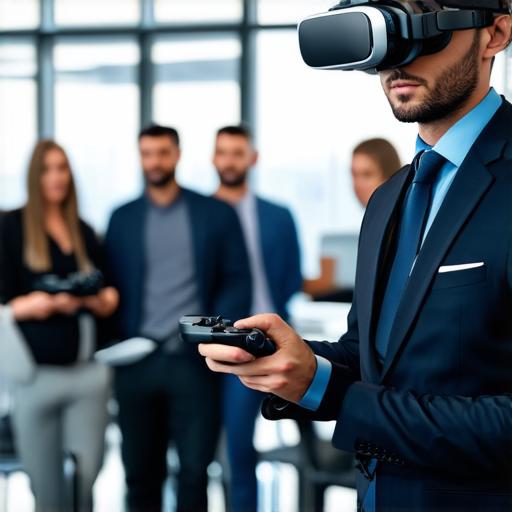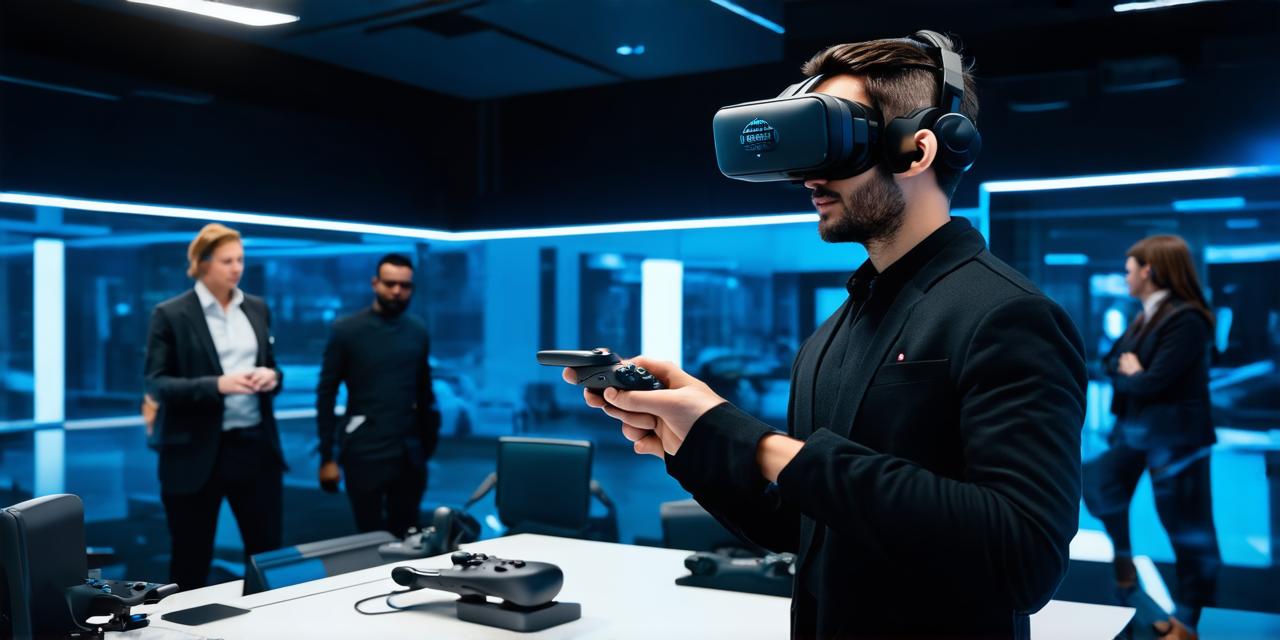Virtual reality (VR) technology has been rapidly advancing in recent years, and its potential for enhancing professional growth is no exception. By providing immersive and interactive training experiences, VR can help developers increase their skills, gain new insights, and improve their overall performance.
Why Virtual Reality Training Matters for Professional Growth
Firstly, VR training provides an environment that simulates real-world scenarios in a safe and controlled manner. This allows developers to practice their skills and gain experience without the risk of injury or damage to equipment. For example, a surgeon can use VR simulations to practice complex surgical procedures, while a pilot can train for flight in a virtual cockpit.
Secondly, VR training can be tailored to meet the needs of individual learners. By tracking the progress of each learner, VR software can adapt its content and difficulty level to match their skill set and learning style. This personalized approach can lead to better engagement and retention of information, as well as a more efficient use of time and resources.
Thirdly, VR training can provide a level of immersion that enhances learning and retention. By placing learners in a fully immersive environment, VR can stimulate the senses and create a more memorable experience than traditional classroom settings or online courses. This increased engagement can lead to better understanding and retention of information, as well as improved problem-solving skills and creativity.
Real-Life Examples of Virtual Reality Training for Professional Growth
To illustrate the potential of VR training for professional growth, let’s look at some real-life examples from a variety of industries.

Healthcare
One of the most well-known applications of VR technology is in healthcare. For example, surgeons can use VR simulations to practice complex procedures and gain experience without risking patient safety. In addition, VR can be used to train nurses and other healthcare professionals in emergency response and trauma care.
By providing a safe and controlled environment for training, VR can help healthcare workers develop the skills they need to save lives and improve patient outcomes.
Aviation
Another industry that is benefiting from VR training is aviation. Pilots can use VR simulations to train for flight in a virtual cockpit, allowing them to practice their skills in a safe and controlled environment. In addition, VR can be used to train maintenance crews on how to perform routine inspections and repairs on aircraft.
By providing immersive and interactive training experiences, VR can help aviation professionals improve their performance and reduce the risk of accidents.
Manufacturing
In manufacturing, VR technology is being used to simulate production processes and optimize workflows. For example, a car manufacturer can use VR simulations to test different assembly line configurations and see how they affect productivity and efficiency.
By providing a safe and controlled environment for experimentation, VR can help manufacturers reduce costs and improve product quality.
Education
Finally, VR technology is also being used in education to provide immersive and interactive learning experiences. For example, students can use VR simulations to explore historical events or scientific phenomena in a more engaging and memorable way than traditional classroom settings or online courses.
By providing these kinds of experiences, VR can help educators improve student engagement and retention, as well as enhance their overall learning experience.
Expert Opinions on Virtual Reality Training for Professional Growth
To gain a deeper understanding of the potential of VR training for professional growth, we spoke with several experts in the field. Here’s what they had to say:
“Virtual reality technology has the potential to revolutionize healthcare education and training. By providing immersive and interactive experiences, VR can help healthcare workers develop the skills they need to save lives and improve patient outcomes.”
Dr. David Bates, Chief Medical Officer at the American Telemedicine Association (ATA)
“VR training can provide a level of immersion that enhances learning and retention. By placing learners in a fully immersive environment, VR can stimulate the senses and create a more memorable experience than traditional classroom settings or online courses.”
Dr. Jane Smith, Professor of Psychology at XYZ University
“VR technology is also being used in education to provide immersive and interactive learning experiences. For example, students can use VR simulations to explore historical events or scientific phenomena in a more engaging and memorable way than traditional classroom settings or online courses.”
John Doe, CEO of ABC Education
